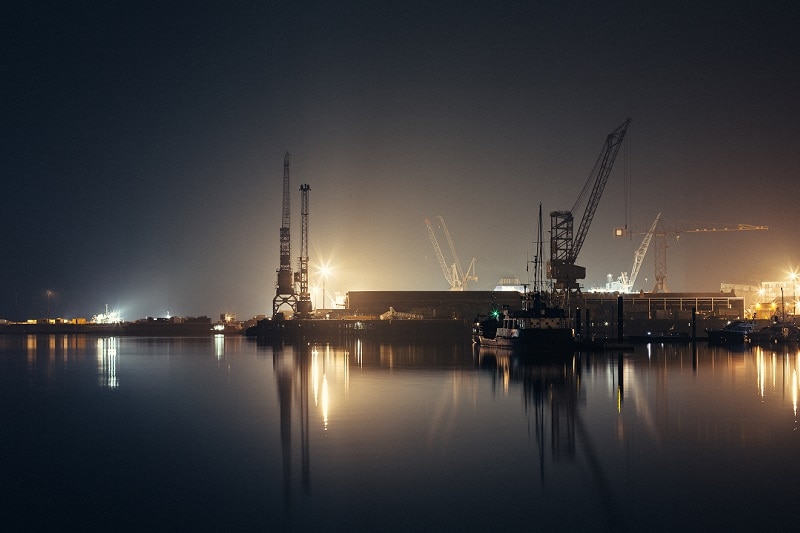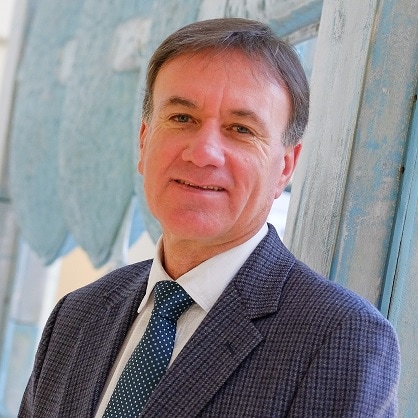
In Focus: Free Trade Zones
22 nov 2017

STOP: ILLEGAL talked to PMI’s Juan Cichero, Manager Illicit Trade Strategies & Prevention, Latin America & Canada, who recently participated at INTA’s Workshop “Free Trade Zones (“FTZs”): Commerce vs. Counterfeit.”
STOP: ILLEGAL: What are Free Trade Zones?
JUAN CICHERO: Many countries have set up special economic areas, typically known as Free Trade Zones (FTZs), where goods may be landed, stored, handled, manufactured, or reconfigured, and re-exported generally not subject to customs duty. FTZs have been highly successful in boosting economic development in areas with little natural resources or industry and are growing in number.
STOP: ILLEGAL: Why are FTZs a concern in the fight against the illicit trade?
JUAN CICHERO: The same features of FTZs that are designed to facilitate legitimate business opportunities—like openness and speed—are being exploited and misused by organized crime groups to produce, distribute, and sell counterfeit goods. In Latin America, some major FTZs are located, for example, in Belize, Chile, Colombia, and Panama. There, we see cigarettes imported without the payment of any customs duty. They can be purchased by traders and distributors without the payment of tax and then can be smuggled across borders where they are sold as illicit products.
STOP: ILLEGAL: Is illicit tobacco a major problem in Latin America?
JUAN CICHERO: We are making progress, but 15.6 percent of all cigarettes consumed in the region are illicit—that’s one cigarette out of six, or almost 40 billion units per year. Almost half of that amount is consumed in Brazil alone.
STOP: ILLEGAL: What is PMI’s position on greater regulation of Free Trade Zones?
JUAN CICHERO: PMI has long supported increased regulation of tobacco manufacturing and the movement of tobacco within FTZs. While trade facilitation needs to prevail as a matter of concept in FTZs, we think regulation is much needed and long overdue. The high volume of containers, the ease of repackaging, re-labeling, or simply disguising the actual origin of the goods within the zones, combined with the overall lack of oversight, make FTZs rife for exploitation.
National customs authorities are usually only allowed to perform intermittent controls in the Free Trade Zones, hostages to the lack of unified criteria of international treaties and national legislation, as to whether they can or cannot observe day-to-day operations.
We strongly believe that empowering Customs authorities to perform routine controls within the Zones will bring the necessary balance between trade facilitation and customs oversight, protecting brand owners from the abuse of these zones by criminal organizations.
When it comes to tobacco, we are eager to see the implementation of the WHO FCTC Protocol to Eliminate Illicit Trade in Tobacco Product, as it contains many of the measures we have been long advocating for. The Protocol, through its Article 12, will allow its parties to implement more stringent regulation on FTZs, in line with other relevant provisions of the treaty like licensing and due diligence for Free Zone operators, tracking and tracing, and unlawful conducts. These regulations will also allow parties to monitor compliance with labeling requirements of the final destination country, as required by Article 11 (labeling of tobacco products) of the Framework Convention on Tobacco Control.
STOP: ILLEGAL: Does this contravene the nature of Free Trade Zones?
JUAN CICHERO: Not at all. We believe that the implementation of these measures will definitely increase the transparency in the transactions of FTZs operators dealing with tobacco products, while facilitating trade, protecting tax revenues, and promoting coordination between customs and FTZs administrations.
If you look at the revised World Customs Organization Kyoto Convention, it states that governments must provide customs with the authority to inspect warehouses and manufacturing facilities in FTZs. While the Kyoto Convention, in its Annex D, clearly defines goods introduced in free zones as “generally regarded, insofar as import duties and taxes are concerned, as being outside the Customs territory,” the very same Annex D re-affirms the “right to carry out checks at any time on the goods stored in a free zone”—thereby unequivocally allowing Customs to conduct controls over goods suspected to infringe intellectual property or other prohibited goods such as weapons, drugs, etc.
STOP: ILLEGAL: Why don’t you just advocate a ban on tobacco being manufactured and traded through Free Trade Zones as part of the FCTC Protocol to tackle the illicit trade?
JUAN CICHERO: The Protocol is still a “young” treaty, with an auspicious future if it is globally adopted. Promoting a prohibition of tobacco products in Free Trade Zones may seem to be the easiest solution. However, due to the dynamic nature of illicit trade and the organized crime networks behind it, a decision as such will only displace the problem to other jurisdictions where the FCTC Protocol hasn’t been ratified. It would also discourage countries with successful Free Trade Zones from ratifying the Protocol, which would be a barrier to the global effectiveness of the Protocol. Increased regulation of Free Trade Zones is the only effective route to take.
Related articles
Share this link
Illicit trade prevention


